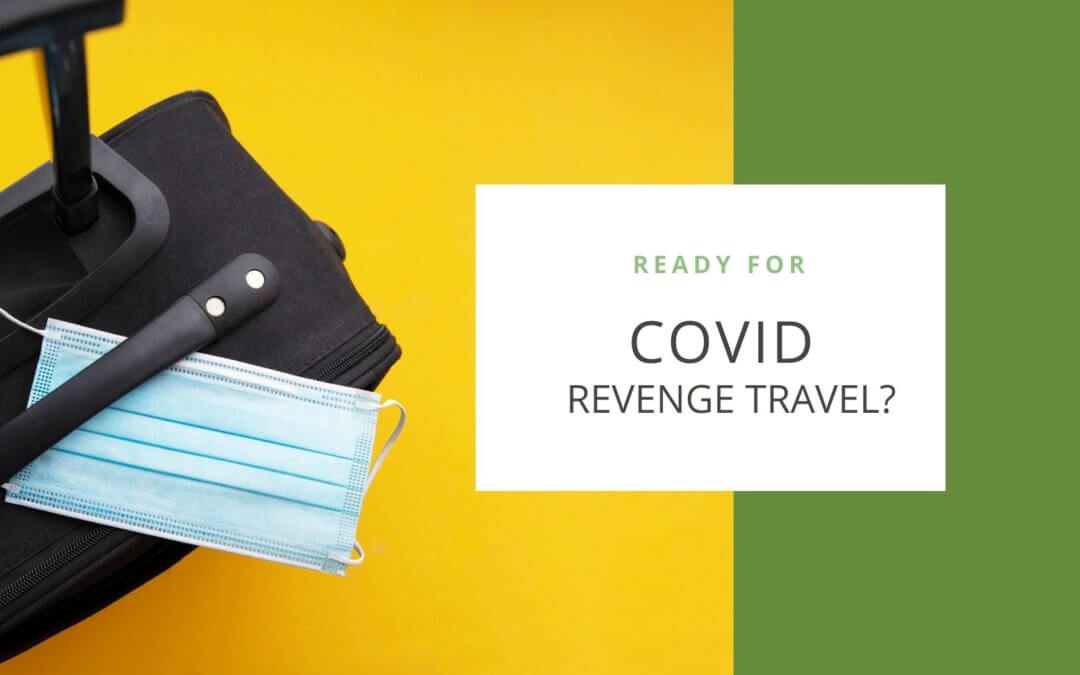The phrase ‘revenge travel’ was coined by India’s health ministry after the country’s tourist areas were inundated with people desperate to escape the confines of lockdown just weeks after restrictions were lifted. Despite the phrase being initially used to voice concerns around post-Covid tourism causing new waves of the disease, it can’t be denied that, as lockdown restrictions ease around the world, people are increasingly on the move.
This sudden bounce back brings a host of implications for the hospitality industry as a whole, not least hoteliers. The post-Covid guest is not the same customer as the pre-Covid guest. Their desires, needs and expectations have evolved in a very short period of time – and only hotels that can meet them will survive in this highly competitive environment. Having the right technology is key to success.
Covid-19 drove everything online
During lockdown, people around the world got used (or more used) to doing everything online. From ordering groceries to attending medical appointments, the outside world was condensed to the click of a button. Online gaming and TV streaming increased exponentially, as did the use of social media, smartphone apps, messenger and instant chat services, and video conferencing. Digitalization became the norm – and it’s something that’s here to stay.
What this means for hoteliers is that traditional, offline systems for services such as booking rooms, ordering room service and communicating with different hotel departments are no longer fit for purpose. Today’s guest expects services such as hotel-wide WiFi, apps for ordering room service and the ability to communicate on social media or messenger app as standard.
What’s more, they expect a fully-integrated service, where each department of the hotel provides a personalized, high-quality experience. Having a standalone website with an online booking function that doesn’t provide personalized content coming from the attributes of the central guest profile nor integrate with any other on-premise systems is no longer enough to entice the post-lockdown guest.
Safety concerns are still paramount
Whilst travelers are undoubtedly keen to get out and about post-Covid, most people will still want to take precautions. Maintaining social distancing and reducing physical touchpoints within the hotel environment are therefore essential to attracting customer bookings. Offline systems and processes such as manual check-in registers, ‘traditional’ keys and un-sanitized in-room telephones – not to mention a lack of WiFi provision – won’t make a hotel popular.
Contactless technology was with us before the pandemic came along, but is now essential to hoteliers’ success. Today’s safety-conscious guest will be looking for features such as mobile check in / check out, contactless room entry and alternatives to using the room’s telephone, such as an instant messaging service with key hotel departments. Instead of the time-honored folder of hotel information, customers now expect to use the TV – or better still, a smartphone app or dedicated microsite they can access on their own device – to find out about the hotel’s services and facilities. And, of course, business-grade in-room WiFi.
Guest-centricity is more important than ever
Of course, providing a great experience to every customer has always been central to the hotel trade. But to the travel-starved post-Covid tourist, only the best is good enough. From a technological point of view, that means integrating the hotel’s systems to create a central profile for each guest, and building up a clear picture of their individual needs and preferences to provide the ultimate in customer satisfaction.
Only by centralizing the guest profile can the hotel offer a highly personalized service that’s almost guaranteed to resonate with the customer, such as individualized pre arrival and post departure emails, welcome gifts, upgrades and special offers, loyalty schemes and customer satisfaction surveys sent using their preferred technology. Traditional hotel tech stacks, which tend to create multiple profiles for each guest, scattered across different systems and departments, simply can’t offer this functionality.
The answer to Covid-revenge travel? Central Data Management.
Central Data Management, or CDM, is a hotel tech stack where all key systems and processes are connected in real-time. Unlike many systems which revolve around the Property Management or Customer Relationship Management systems, a CDM has a single, clean version of the guest profile at its center.
Hotels that implement CDMs will enjoy all the technological benefits described above, as well as other advantages such as GDPR-compliance, transparency and accessibility of customer profiles across departments, sites and hotel brands – and the ability to leverage the power of Big Data to find out amazing levels of detail about each guest.
Find out more in the latest dailypoint White Paper
For more information about the importance of adopting a CDM system in your hotel – and why your tech stack should never have the PMS or CRM at its center – read our latest White Paper: “What should be the successor of the PMS for hotels?” Click here to download it now.
#CovidRevengeTravel #technologyiskey

